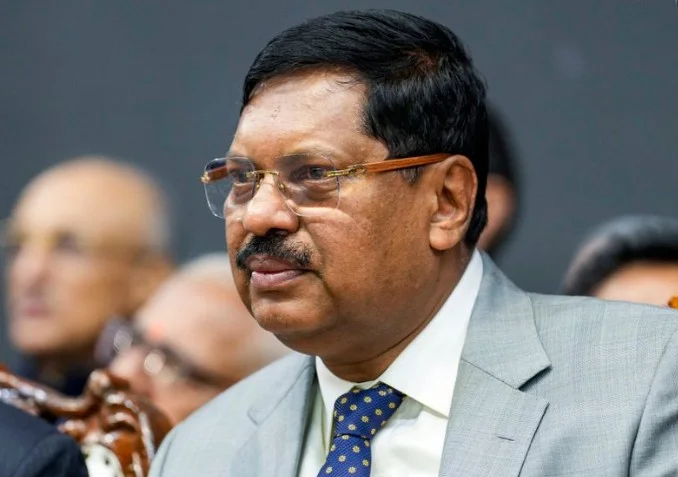New Delhi, Aug 15. 2025 — Chief Justice of India (CJI) B.R. Gavai on Saturday said the Supreme Court is not a superior court to the High Courts, noting that both are constitutional courts with equal standing under the law. Speaking at a Supreme Court Bar Association (SCBA) event marking the 79th Independence Day, he underscored that the Supreme Court Collegium cannot direct a High Court Collegium to recommend specific names for judgeships.
“Ultimately, even the Supreme Court Collegium can’t dictate the High Court Collegium to recommend the names… the Supreme Court is not a superior court to the High Court,” Gavai said. “Both the Supreme Court and the High Court are constitutional courts, and as far as the constitutional scheme is concerned, they are neither inferior nor superior to each other. The first call has to be taken by the High Court Collegium.”
Responding to SCBA president Vikas Singh’s appeal that the apex court consider Supreme Court lawyers for High Court judgeships regardless of prior practice there, Gavai explained that the Supreme Court’s role is limited to recommending names. “We only recommend the names to the High Court Collegium and request them to consider. Only after they are satisfied that the candidates deserve the designation, do the names come to us,” he said.
The CJI also praised the practice, introduced under former CJI Sanjiv Khanna, of personally interacting with candidates for 10 to 30 minutes to assess their suitability. “It has proved to be really helpful,” he noted.
In a speech interwoven with reflections on India’s freedom movement, Gavai recalled milestones from the 1855 Santhal rebellion in Jharkhand to the reformist work of Jyotirao and Savitribai Phule in Maharashtra, and the moral leadership of figures such as Rabindranath Tagore, Mahatma Gandhi, B.R. Ambedkar and Maulana Abul Kalam Azad. He said the freedom struggle was not merely political, but also a moral and legal endeavour in which lawyers played a pivotal role.
“As legal professionals, you must recognise that no cause is too small to merit your attention,” Gavai said. “What may appear to be a minor dispute to one may in fact be a matter of life, dignity or survival for others. Every case you handle contributes to the moral and social fabric of our nation.”
He urged judges to interpret laws in ways that expand freedoms, protect the marginalised and strengthen the rule of law. “Only then will Tagore’s prayer be answered, Gandhi’s Swaraj be real, and Ambedkar’s idea of democracy be complete,” he said.
Tracing the breadth of the independence movement — from Birsa Munda’s struggle for dignity to Tagore’s renunciation of his knighthood, from the drafting of the Constitution to Gandhi’s moral compass — Gavai said India’s freedom was “forged by the courage of many speaking in different tongues, yet united by one dream of a prosperous and equal India.”
Referring to President Droupadi Murmu’s rise from a small village in Odisha to the highest constitutional office, he called it a testament to the nation’s progress since the Santhal uprising. But he cautioned that the journey towards a just, equal and inclusive India was “far from complete.”
“Let us pledge that the India we pass on will be one where no child is denied education because of caste or poverty, no woman walks in fear, and no citizen is too small to be heard,” he said. “It is our solemn duty as judges and lawyers to uphold, protect and embody the fundamental values of liberty, equality and fraternity — the bedrock of our democracy.”

